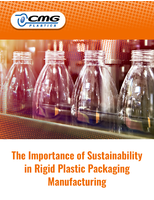BIO comments about follow-on biologics to FTC.
Share:
Press Release Summary:
In comments to the FTC, BIO said patient safety and data exclusivity to preserve biomedical innovation should stand at the center of a regulatory approval pathway for follow-on biologics. It agreed with an FDA statement that it has not been determined how interchangeability can be established for complex proteins. Also, the BIO urges that patients and doctors, not pharmacists or health plans, decide whether to substitute a follow-on biologic for an innovator biologic.
Original Press Release:
Patient Safety and Incentives for Continued Innovation
Patient Safety and Incentives for Continued Innovation Must be Provided in Any Pathway for the Approval of Follow-On Biologics, BIO Tells FTC
WASHINGTON, D.C. (October 1, 2008) - Patient safety and data exclusivity to preserve biomedical innovation should stand at the center of a regulatory approval pathway for follow-on biologics, wrote the Biotechnology Industry Organization (BIO) in comments provided yesterday to the Federal Trade Commission (FTC). BIO submitted the comments in response to the agency's recent request for input on a series of questions about critical issues which must be considered in the creation of a pathway for the approval of follow-on biologics including substitutability and data exclusivity.
Biologics are more structurally complex medicines than chemical drugs, and even slight changes in their manufacture can cause undetected changes in the biological composition of the product. These changes can in turn affect the safety and effectiveness of the product in patients. In its comments, BIO agreed with a statement by the Food and Drug Administration that it has not been determined how interchangeability can be established for complex proteins. BIO urges that patients and doctors, not pharmacists or health plans, make the decision whether to substitute a follow-on biologic for an innovator biologic.
The balance between innovation and generic competition struck by the Hatch-Waxman Act can provide valuable insights for the development of a follow-on biologics approval pathway, wrote BIO. That legislation provides innovators and generic competitors a range of statutory, patent, and litigation-based incentives that create de facto protection against generic competition for a limited period of time. BIO has developed a detailed and comprehensive argument (available at bio.org/healthcare/followonbkg/FOBSMarket_exclusivity_20070926.pdf) for why 14 years of data exclusivity should be included in any pathway to provide an adequate incentive for biotech innovation. BIO's comments to FTC also provide arguments as to why a follow-on biologics pathway must maintain incentives for second-generation products and for new indications.
"Biotech innovation is vitally important to the future of healthcare, the U.S. economy, the biotechnology industry, and, most importantly, patients," stated BIO President and CEO Jim Greenwood. "When crafting a follow-on biologics approval pathway, it is important to err on the side of incentivizing innovation, particularly in light of the unique elements of the biotechnology industry. These companies already bear enormous costs and a very high degree of uncertainty, not only in product development and manufacturing, but also in raising the necessary capital to fund innovative research. As compared to the broader pharmaceutical industry, biotechnology companies are more vulnerable to the type of changes in investment incentives that could result from a poorly-crafted follow-on biologics regime."
BIO's comments can be found at
http://bio.org/healthcare/followonbkg/comments10012008.pdf.
Upcoming BIO Events
Intellectual Property Council Committee Fall Conference and Meeting
October 20-22, 2008
Orlando, Fla.
BIO HR Conference 2008
October 26-28, 2008
San Diego, Calif.
BIO-LES Advanced Business Development Course
October 27-29, 2008
San Francisco, Calif.
BIO Investor Forum 2008
October 29-31, 2008
San Francisco, Calif.
Advanced Business Development Course
November 14-16, 2008
Mannheim/Heidelberg, Germany
BIO-Europe 2008
November 17-19, 2008
Mannheim/Heidelberg, Germany
2009 BIO International Convention
May 18-21, 2009
Atlanta, Ga.
About BIO
BIO represents more than 1,200 biotechnology companies, academic institutions, state biotechnology centers and related organizations across the United States and in more than 30 other nations. BIO members are involved in the research and development of innovative healthcare, agricultural, industrial and environmental biotechnology products. BIO also produces the BIO International Convention, the world's largest gathering of the biotechnology industry, along with industry-leading investor and partnering meetings held around the world.
Contact
Stephanie Fischer
(202) 312-9263




